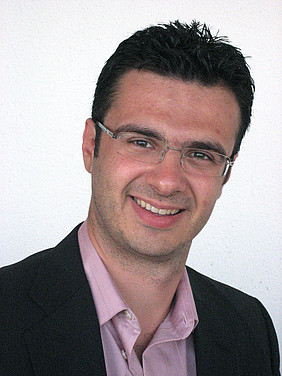Την Τρίτη 16 Ιουνίου 2015 και ώρα 14:00 στην αίθουσα Δ3.004 (ΜΠΔ) θα δοθεί ομιλία από τον Prof. Nikolas Geroliminis.
Τίτλος Ομιλίας:
Dynamics of heterogeneity in urban networks: aggregated traffic modeling and hierarchical control.
Περίληψη ομιλίας:
Real traffic data and simulation analysis reveal that for some urban networks a well-defined Macroscopic Fundamental Diagram (MFD) exists, which provides a unimodal and low-scatter relationship between the network vehicle density and outflow. Recent studies demonstrate that link density heterogeneity plays a significant role in the shape and scatter level of MFD and can cause hysteresis loops that influence the network performance. Evidently, a more homogeneous network in terms of link density can result in higher network outflow, which implies a network performance improvement. In this article, we introduce two aggregated models, region- and subregion-based MFDs, to study the dynamics of heterogeneity and how they can affect the accuracy scatter and hysteresis of a multi-subregion MFD model. We also introduce a hierarchical perimeter flow control problem by integrating the MFD heterogeneous modeling. The perimeter flow controllers operate on the border between urban regions, and manipulate the percentages of flows that transfer between the regions such that the network delay is minimized and the distribution of congestion is more homogeneous. The first level of the hierarchical control problem can be solved by a model predictive control approach, where the prediction model is the aggregated parsimonious region-based MFD and the plant (reality) is formulated by the subregion-based MFDs, which is a more detailed model. At the lower level, a feedback controller of the hierarchical structure, tries to maximize the outflow of critical regions, by increasing their homogeneity. With inputs that can be observed with existing monitoring techniques and without the need for detailed traffic state information, the proposed framework succeeds to increase network flows and decrease the hysteresis loop of the MFD. Comparison with existing perimeter controllers without considering the more advanced heterogeneity modeling of MFD highlights the importance of such approach for traffic modeling and control.
Λίγα λόγια για τον εισηγητή:
Prof. Nikolas Geroliminis is an Associate Professor at EPFL and the head of the Urban Transport Systems Laboratory (LUTS). Before joining EPFL he was an Assistant Professor on the faculty of the Department of Civil Engineering at the University of Minnesota. He has a diploma in Civil Engineering from the National Technical University of Athens (NTUA) and a MSc and Ph.D. in civil engineering from University of California, Berkeley. He is a member of the Transportation Research Board's Traffic Flow Theory Committee. He also serves as an Associate Editor in Transportation Research, part C and in the editorial board of Transportation Research, Part B, Journal of ITS and of many international conferences. His research interests focus primarily on urban transportation systems, traffic flow theory and control, public transportation and logistics, Optimization and Large Scale Networks. He is a recent recipient of the ERC Starting Grant “METAFERW: Modeling and controlling traffic congestion and propagation in large-scale urban multimodal networks”.














